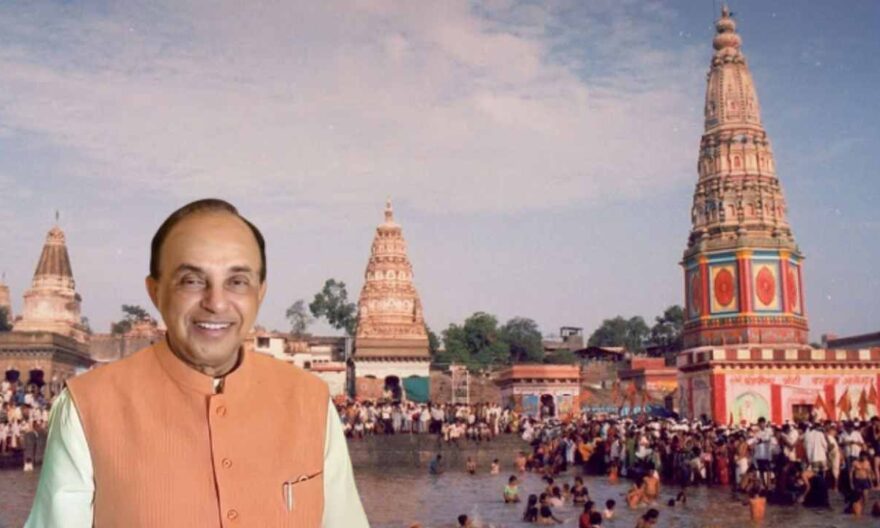
The Bombay High Court on Monday sought the Maharashtra government response on a public interest litigation (PIL) filed by BJP leader Subramanian Swamy, challenging the Pandharpur Temples Act.
Swamy moved the High Court in February this year, contending that the Maharashtra government had assumed control over the administration of temples in Pandharpur town in an arbitrary manner.
A division bench of Chief Justice Devendra Kumar Upadhyaya and Justice Arif S Doctor directed the government to submit its affidavit and scheduled the case for hearing on September 13, 2023.
As per the plea, the state government, through the Pandharpur Temples Act of 1973, eliminated all hereditary rights and privileges of ministrants and priestly classes in order to oversee the governance and administration of the Lord Vitthal and Rukmini temples in Pandharpur, situated in Solapur district of the state. The law conferred authority upon the state government to manage its administration and financial resources, the plea stated.
During the hearing, Bheemacharya Balacharya, asserting affiliation with the Dharma Rakshak Trust, attempted to intervene in the case. However, the High Court deemed his intervention unnecessary and rejected his application. In his PIL, Swamy stated that he had written to Chief Minister Eknath Shinde in July 2022, highlighting that the temple affairs, encompassing religious offerings and customs, were being “heavily mismanaged.”
He argued that this mismanagement could adversely affect Hindu religious sentiments and the fundamental rights of believers. The former Rajya Sabha member also informed that he had written to then Governor Bhagat Singh Koshyari on December 18, 2022, urging the repeal of the Pandharpur Temples Act.
The PIL emphasized that the government’s control over the Pandharpur temple encroached upon the rights of Hindus to profess, practice, and propagate their religion, as well as to manage Hindu Religious Endowments and related matters of faith. Additionally, the petition noted that the government could assume control over property for a limited period either in the interest of the public or for proper management.
“However, in this case, it was done in perpetuity, rendering it unconstitutional,” the PIL contended.




